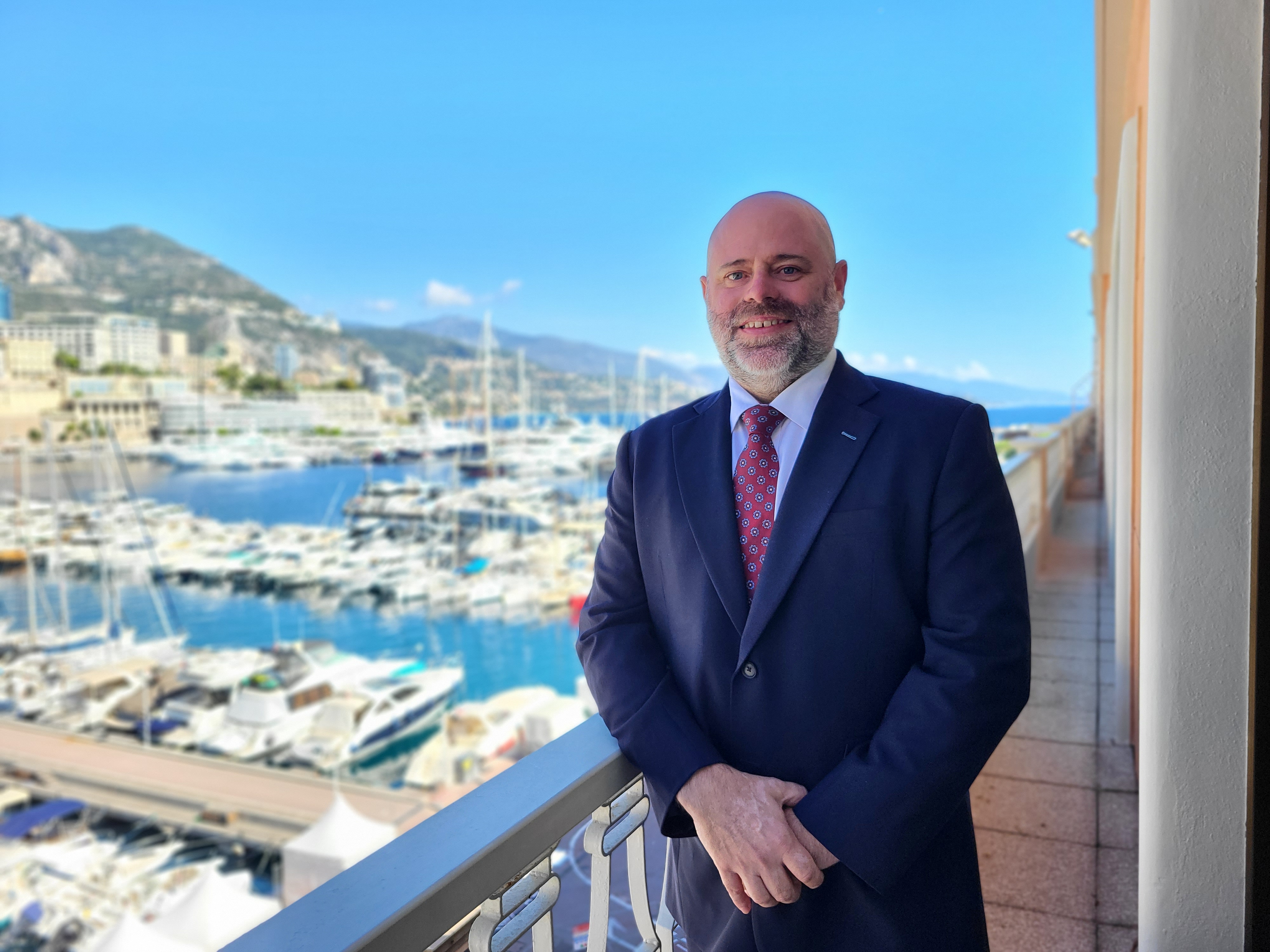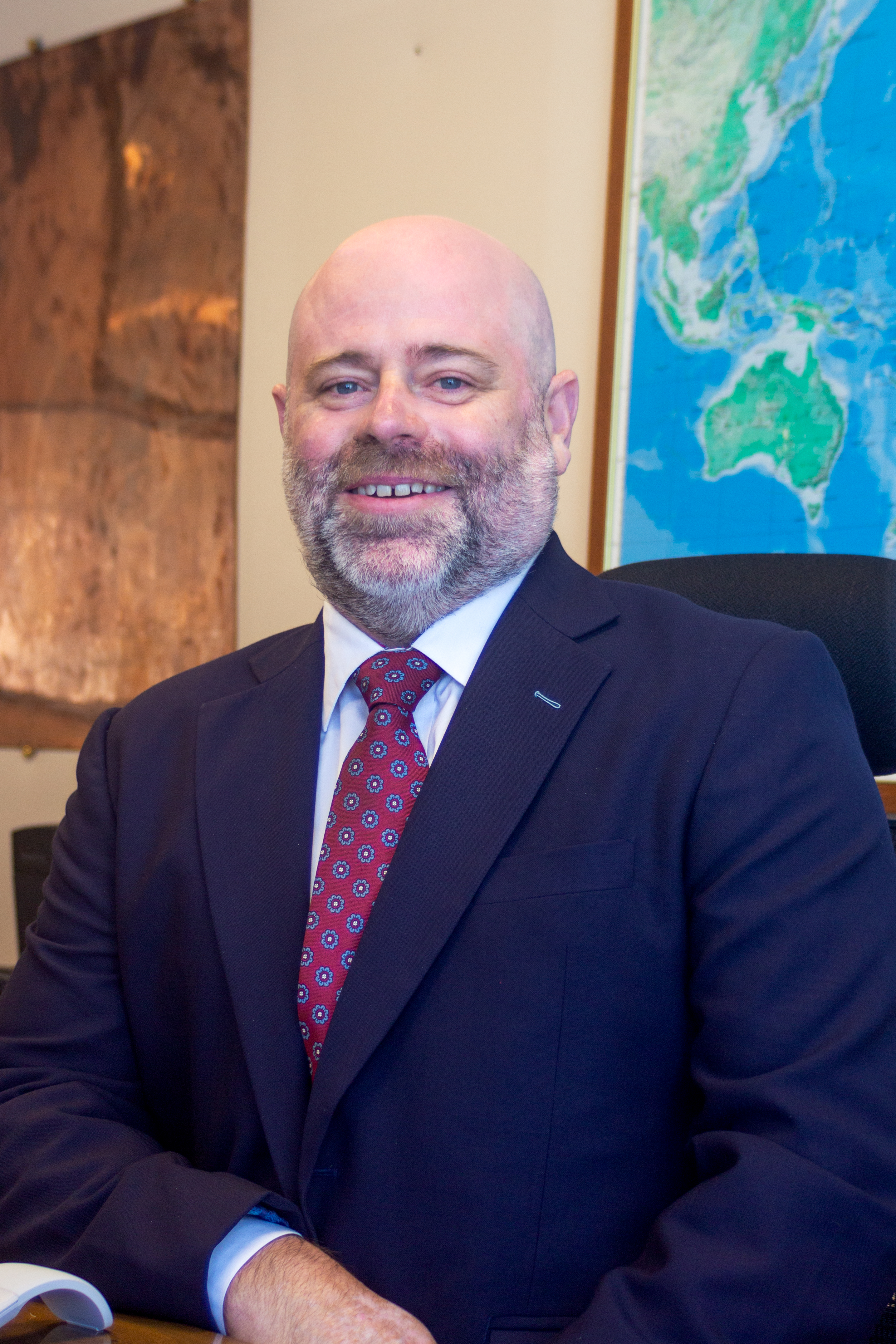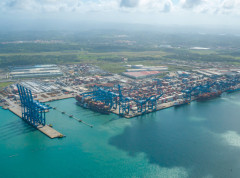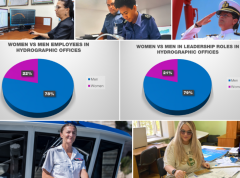New IHO Director presents his background & future objectives
Published: 19/09/2023 - 14:18Following the elections during the 3rd session of the IHO Assembly, Dr. John Nyberg has formally taken up his role as IHO Director at the Secretariat in Monaco.
In order to get to know him better, we asked him questions about his background and aspirations for his tenure at the IHO Secretariat.
John Nyberg previously served as Deputy Hydrographer at the National Oceanic and Atmospheric Administration (NOAA) in the USA.

Can you tell us about the elements of your background and career journey that led you to where you are today?
I spent my formative years in Florida and my father was an avid recreational boater and fisherman. Fishing in the Florida Everglades, I was always responsible for charting our course. I always loved maps and geography, so this assignment was perfect for me. Our family also spent time sailing in the Caribbean, and the introduction of electronic navigation (raster service) made an impression on me during a sailing trip to St. Vincent and the Grenadines (I think in the very early 2000s). The charting system was run on a handheld with a big GPS sleave.
I chose geography as my main course of study at the University of Florida and worked in the University’s map library while there. For a short time, I also drew maps for a PhD student who was mapping sewer systems on the Canary Islands.
A few other jobs that I have held over the years - magic shop clerk, a book store clerk, ice cream truck driver on Daytona Beach, a sushi bar (tempura chef, dish washer, bus boy and server), and travel agent.
Can you tell us more about your past experiences, how they shaped your perspective and prepared you for your new role as IHO Director?
I started as an entry level contractor at NOAA and my first assignment was to compare the list of lights to all of the ~1,000 NOAA charts, moving on to a job digitizing shoreline for the newly established ENC program. Once hired as a full time employee, I became a Coast Pilot (sailing direction) cartographer, developed the Coast Survey website, and moved to a Technical Advisor position that was responsible for the office’s trade show program.
After these jobs I entered senior management as a Deputy Division Chief where I managed budgets, human resources, and Division property for two divisions over about 10 years. After that I was promoted to Marine Chart Division Chief and then to Deputy Hydrographer.
These positions have all shaped my perspective in different ways. I believe that working up from the ground level in charting has given me a sincere appreciation for the complexities and detail involved in producing and managing charting products. Managing trade shows and designing websites were incredible opportunities to work with our customers, learn what is important to them, and understand the value of good communication. Managing people, property and money, then a large suite of products for navigation all required consistent attention, transparency, integrity, and teamwork.
Last, my time as Deputy Hydrographer afforded me the opportunity to extensively work with international partners and organizations, work on consensus based achievements and to better appreciate the wide range of approaches and conditions that hydrographic offices around the world are working under.
Over the years, you’ve been closely involved with the IHO and its organs. Could you share some insights into your involvement and contributions to the IHO’s work?
My experience with the IHO has closely mirrored my professional career progression, working at all levels from working group secretary to chair. Understanding that the IHO is made up of people who are most often doing this work as an additional duty and are working with limited resources makes the IHO’s achievements more impressive than many realize. Each time that I have contributed to a new document, standard, or principle, the IHO membership’s collective contributions have served to improve the final output, make sure that it achievable, or both. The process for reaching consensus almost always involves a variety of opinions that represent different perspectives, backgrounds, and environments. I almost always find the journey more satisfying than the destination.
What are some of the areas you have focused on up to now?

I really love working with people, and I have a passion for assisting enthusiastic people who are working to develop their programs. Working in the South Pacific and Meso American regions have been some of the most fulfilling and inspiring times of my career. Both regions have wide ranges of capabilities, passionate people, big challenges, and amazing diversity. I have worked on many projects in both regions, ranging from charting coordinator in the Meso American and Caribbean Hydrographic Commission to conducting workshops on the United Nations Integrated Geospatial Information Framework (UNIGIF) in Kiribati. Building lasting relationships that extend beyond business in both regions has been an absolute pleasure and something that I will hold on to for life. I hope to continue this trend as I work in new regions for the IHO.
I have also worked very hard to ensure that we are building products for safe navigation while, at the same time, extending the use of our data for other purposes.
The aim of working with the United Nations to produce the United Nations Integrated Geospatial Information Framework – Hydro (UNIGIF-Hydro) has been to both assist countries with their marine implementation of the UNIGIF’s nine strategic pathways and to help ensure that hydrography is integrated into the full geospatial information ecosystem. We want hydrography to have its seat at the geospatial table.
As you step into the position of IHO Director, what are some of the areas you envision focusing on in your work? Could you elaborate on the significance of these endeavours and their potential impact?
I am very pleased to be managing the technical program at the IHO. The IHO Member States have confirmed it as the IHO’s priority of the decade, and I believe that my experience with capacity building and assisting developing programs will help to ensure that all Member States are included in this exciting time of new product and service implementation.
In my view, there are so many things that depend on the success of the implementation of the S-100 generation of products and services. These impacts reach far beyond safe navigation to include environmental sustainability through improved efficiency, increased access to marine data, improved information interoperability and much more.
I, of course, fully intend to focus on advancing the IHO technical program, but I would also like to make sure that we do not exclude any Member States during this time of rapid and significant development.
Dr Nyberg joins Dr Mathias Jonas, IHO Secretary General, and Luigi Sinapi, Director, in the Directing Committee, and will be in charge of Work Programme 2, Hydrographic Services and Standards.




Share this page: